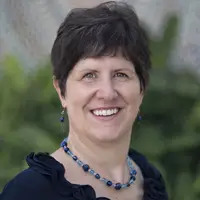The number of people living with dementia is expected to double by 2050 and will outpace the availability of dementia specialists trained to diagnose and treat them. Geriatricians, neurologists, and geriatric psychiatrists are the specialists trained to conduct comprehensive evaluations to diagnose dementia and the underlying disease pathology (e.g., Alzheimer’s disease, Lewy body dementia, vascular dementia). However, the studies show that there will be a significant shortage of nearly 27,000 geriatricians and 820 neurologists by 2025. Another study reported an average of 2.6 geriatric psychiatrists per 100,000 people aged 65 and older, with two states having no geriatric psychiatrists.
Importance of a Timely Dementia Diagnosis
A person living with dementia can experience an array of cognitive, communication, behavioral, motor, and memory changes, making it difficult to interact with others and manage daily activities. Timely diagnosis can change the trajectory of treatment for other health conditions and allows people living with dementia and their families to get education and support, plan ahead, and benefit from available treatment including new FDA approved therapies.
Unfortunately, the process of obtaining an accurate diagnosis can be challenging and stressful for the individual and family members. Studies estimate that 40-60 percent of people with a probable dementia experience up to a 4-year delay in obtaining a diagnosis or are never diagnosed. And of those who are diagnosed with dementia, 60 percent do not receive the diagnosis until after the condition has progressed to a moderate stage.
The Complexities of Diagnosing Dementia
Diagnosing dementia is a complex, multistep process that requires the expertise of a trained medical provider and can include the input of other disciplines such as neuropsychologists and social workers who are part of an interdisciplinary team. Although diagnosing dementia is within the scope of practice for primary care physicians (e.g. internists and family medicine physicians), they are more likely to make a referral to a specialist. An accurate diagnosis requires a comprehensive evaluation that includes an interview with the individual and caregiver or other knowledgeable informant to understand the onset and course of illness, family history, medication review, medical and neurological exam, functional and cognitive assessment, lab work, and neuroimaging. Interpreting the results from all these components to come up with a diagnosis requires expertise and experience.
Specialized Training and Competencies Requirements
Neurologists, geriatricians, and geriatric psychiatrists receive significant specialized training in dementia evaluation, diagnosis and treatment. Each discipline completes 1-2 years of advanced training and must demonstrate core competencies in assessment, diagnosis, and management before becoming licensed to practice.
In addition to the advanced training and licensing requirements, the shortage of dementia specialists to teach and mentor residents and fellows is also a significant barrier to growing these specialties. Board certification in geriatric neurology was discontinued in 2020 because of too few applicants and fellowship programs.
Addressing the Dementia Specialist Shortage
There are multiple potential solutions to address these challenges. One solution to the dementia specialist shortage is to teach primary care physicians and interdisciplinary teams to screen for dementia and to refer individuals to a dementia specialist. The Gerontological Society of America KAER Toolkit for Primary Care Teams: Supporting Conversations About Brain Health, Timely Detection of Cognitive Impairment, and Accurate Diagnosis of Dementia provides the range of tools needed for a comprehensive approach that covers brain health, early detection, diagnosis, care planning and community-based supports. The toolkit offers practical approaches, educational resources, and validated clinical tools that can be used by solo providers or interdisciplinary teams. KAER stands for Kickstart the Brain Health Conversation; Assess for Cognitive Impairment; Evaluate for Dementia; and Refer for Community Resources.
Training programs in geriatrics and dementia care for primary care physicians is another possible solution. California’s Dementia Care Aware is a training and support program that offers cognitive health assessment training, interactive case conferences, practice support consultation, webinars, podcasts, and other resources. The Veterans Health Administration Geriatrics Scholars program offers staff training to integrate geriatrics into primary care practices, including three programs with a clinical practicum that focus specifically on dementia. GRECC Connect, another VA program, is a national project to improve access to geriatric care in rural areas, supporting providers caring for rural Veterans with geriatric syndromes including dementia.
Lastly, offering financial incentives is another solution to the dementia specialist shortage is to increase the number of providers trained to diagnose and treat dementia by offering financial incentives to enter geriatrics and other dementia-related care fields to medical students and residents. Financial incentives can include tuition assistance, loan forgiveness, housing subsidies, and stipends including stipends for foreign graduates. Earmarked funding for medical schools and specialty programs could be used to hire more dementia specialists as faculty to teach and mentor residents and fellows.
Looking to the Future of Dementia Care
The number of people showing signs and symptoms of possible dementia continues to grow with the aging of our population and dementia care will be improved if other health care disciplines receive specialized training. New models of care such as the recently announced CMS GUIDE model are most effective when every member of the treatment team has dementia training. Disciplines such as pharmacy, social work and nursing can act as “physician extenders” to improve the reach and quality of dementia care.
Although not a replacement for human clinical knowledge and judgement, artificial intelligence is a promising adjunct to geriatric medicine and perhaps could address some of the challenges we are currently experiencing with the dementia specialist shortage. Artificial intelligence models such as ChatGPT offer quick, accurate information on topics that can assist with clinical decision making and wearable sensors provide a snapshot of a person’s day to day activity and health status by tracking physiological data in real time, for example.

